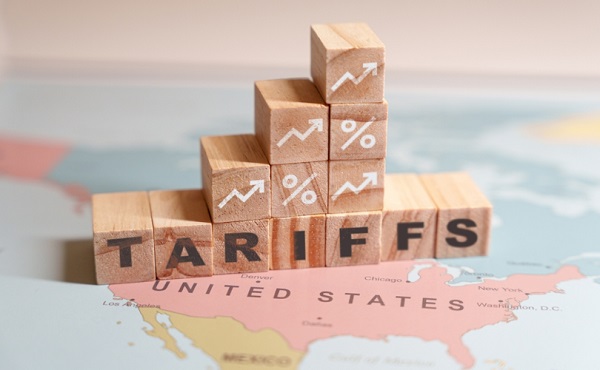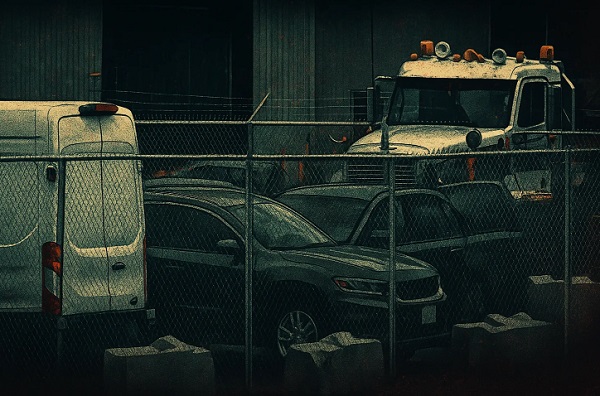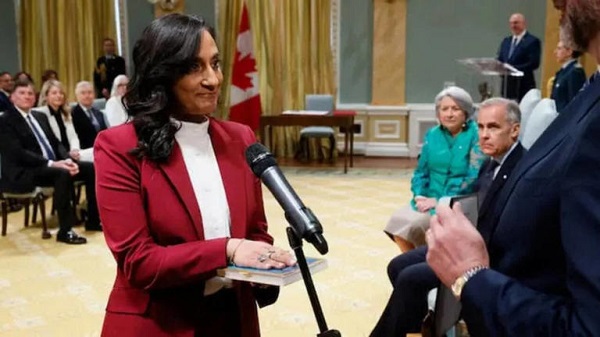Business
Todayville At The Home Show With Canadian Closet
Business
Vanishing lines and fading logic

From Resource Works
Canada’s road paint rules are fading fast—along with public patience
The short paint story that’s actually a big deal
Across Canada, road crews are repainting more often, spending more taxpayer money, and—ironically—emitting more carbon. Why? Because of a federal regulation aimed at reducing volatile organic compounds (VOCs) in traffic paint. The change sounds technical, even trivial. It’s not.
In warm months—from May 1 to October 15—Canadian regulations now cap VOC content in road marking paint at 150 g/L, down from 450 g/L the rest of the year. The reason? To reduce smog formation during periods of high air pollution risk.
But the real-world consequences are showing up fast. Paint doesn’t last. Lines fade. And in rural areas without streetlights, that’s not a minor annoyance—it’s a serious hazard.
This isn’t just a quirky tale of bureaucratic overreach. It’s part of a larger pattern where well-intentioned environmental policy drifts into untested technocracy—implemented with little transparency, consultation, or regard for operational impact.
Municipal leaders, from Halton Hills to Brazeau County, are speaking up. First responders and firefighters are reporting crashes tied to disappearing lane markings. Yet the federal stance remains firm: the air must be cleaned—whether or not the paint adheres.
And here’s the kicker. These seasonal VOC limits? They’ve been in place since 2012 under the Canadian Environmental Protection Act. But what’s new is a 2023 proposal to tighten VOC limits even further, aligning Canadian standards with California’s most aggressive targets. According to the Canadian Paint and Coatings Association (CPCA):
“Canada is now expected to meet these same low VOC limits in the proposed regulations expected to pass in 2024… If passed, the outcome will mean a loss of products for Canadians, a high cost of reformulation for businesses, and minimal or no improvement in air quality.”
Let’s be clear: these proposals have not yet been enacted. But the direction is unmistakable—and it’s raising alarms in industries that value both environmental responsibility and real-world functionality.
On environmental policy, we’ve crossed a line—ironically, one you can’t see anymore because the paint wore off.
The same pressure groups lobbying against Canadian resource development are now campaigning against VOCs in coatings. And once again, Ottawa is listening—without due consideration for trade-offs, unintended consequences, or operational feasibility.
Environmental rules must pass a basic test: Do they deliver measurable public benefit without causing disproportionate harm or risk? In this case, the evidence suggests the answer is no.
If new paint regulations increase taxpayer costs, degrade road safety, and achieve little to no net environmental gain, what exactly are we doing?
We all want to live in a cleaner world. But climate stewardship does not mean blind acceptance of every restrictive measure wrapped in green.
It means balancing outcomes, respecting evidence, and listening to those who are affected on the ground. A policy that forces municipalities to paint more often, at higher cost, with lower durability, is not sustainable by any definition.
Business
Telegram founder Pavel Durov exposes crackdown on digital privacy in Tucker Carlson interview

From LifeSiteNews
By Robert Jones
Durov, who was detained in France in 2024, believes governments are seeking to dismantle personal freedoms.
Tucker Carlson has interviewed Telegram founder Pavel Durov, who remains under judicial restrictions in France nearly a year after a surprise arrest left him in solitary confinement for four days — without contact with his family, legal clarity, or access to his phone.
Durov, a Russian-born tech executive now based in Dubai, had arrived in Paris for a short tourist visit. Upon landing, he was arrested and accused of complicity in crimes committed by Telegram users — despite no evidence of personal wrongdoing and no prior contact from French authorities on the matter.
In the interview, Durov said Telegram has always complied with valid legal requests for IP addresses and other data, but that France never submitted any such requests — unlike other EU states.
Telegram has surpassed a billion users and over $500 million in profit without selling user data, and has notably refused to create government “backdoors” to its encryption. That refusal, Durov believes, may have triggered the incident.
READ: Arrest of Telegram founder Pavel Durov signals an increasing threat to digital freedom
French prosecutors issued public statements, an unusual move, at the time of his arrest, fueling speculation that the move was meant to send a message.
At present, Durov remains under “judicial supervision,” which limits his movement and business operations.
Carlson noted the irony of Durov’s situating by calling to mind that he was not arrested by Russian President Vladimir Putin but rather a Western democracy.
Former President of Russia Dmitry Medvedev has said that Durov should have stayed in Russia, and that he was mistaken in thinking that he would not have to cooperate with foreign security services.
Durov told Carlson that mandates for encryption “backdoors” endanger all users, not just suspects. Once created, such tools inevitably become accessible to hackers, foreign agents, and hostile regimes.
“In the US,” he commented, “you have a process that allows the government to actually force any engineer in any tech company to implement a backdoor and not tell anyone about it.”
READ: Does anyone believe Emmanuel Macron’s claim that Pavel Durov’s arrest was not political?
Durov also pointed to a recent French bill — which was ultimately defeated in the National Assembly — that would have required platforms to break encryptions on demand. A similar EU proposal is now under discussion, he noted.
Despite the persecution, Durov remains committed to Telegram’s model. “We monetize in ways that are consistent with our values,” he told Carlson. “We monetized without violating privacy.”
There is no clear timeline for a resolution of Durov’s case, which has raised serious questions about digital privacy, online freedom, and the limits of compliance for tech companies in the 21st century.
-

 Also Interesting1 day ago
Also Interesting1 day agoThe Best US Hopes for Wimbledon 2025: Who Could Break the Curse at SW19?
-

 Courageous Discourse2 days ago
Courageous Discourse2 days agoHealthcare Blockbuster – RFK Jr removes all 17 members of CDC Vaccine Advisory Panel!
-

 Crime2 days ago
Crime2 days agoLA Mayor Karen Bass Makes New Demands Of Trump At Monday Night Press Conference
-

 espionage1 day ago
espionage1 day agoFBI Director: CCP Behind Wave of Pathogen Smuggling as Third Chinese Student Charged in Michigan Lab Probe
-

 Censorship Industrial Complex2 days ago
Censorship Industrial Complex2 days agoAlberta senator wants to revive lapsed Trudeau internet censorship bill
-

 Business1 day ago
Business1 day agoAlberta’s Nate Horner scores a B on CTF Finance Minister Report Card – Second highest rating in Canada
-

 Immigration1 day ago
Immigration1 day agoMass immigration can cause enormous shifts in local culture, national identity, and community cohesion
-

 Health1 day ago
Health1 day agoRFK Jr. purges CDC vaccine panel, citing decades of ‘skewed science’





